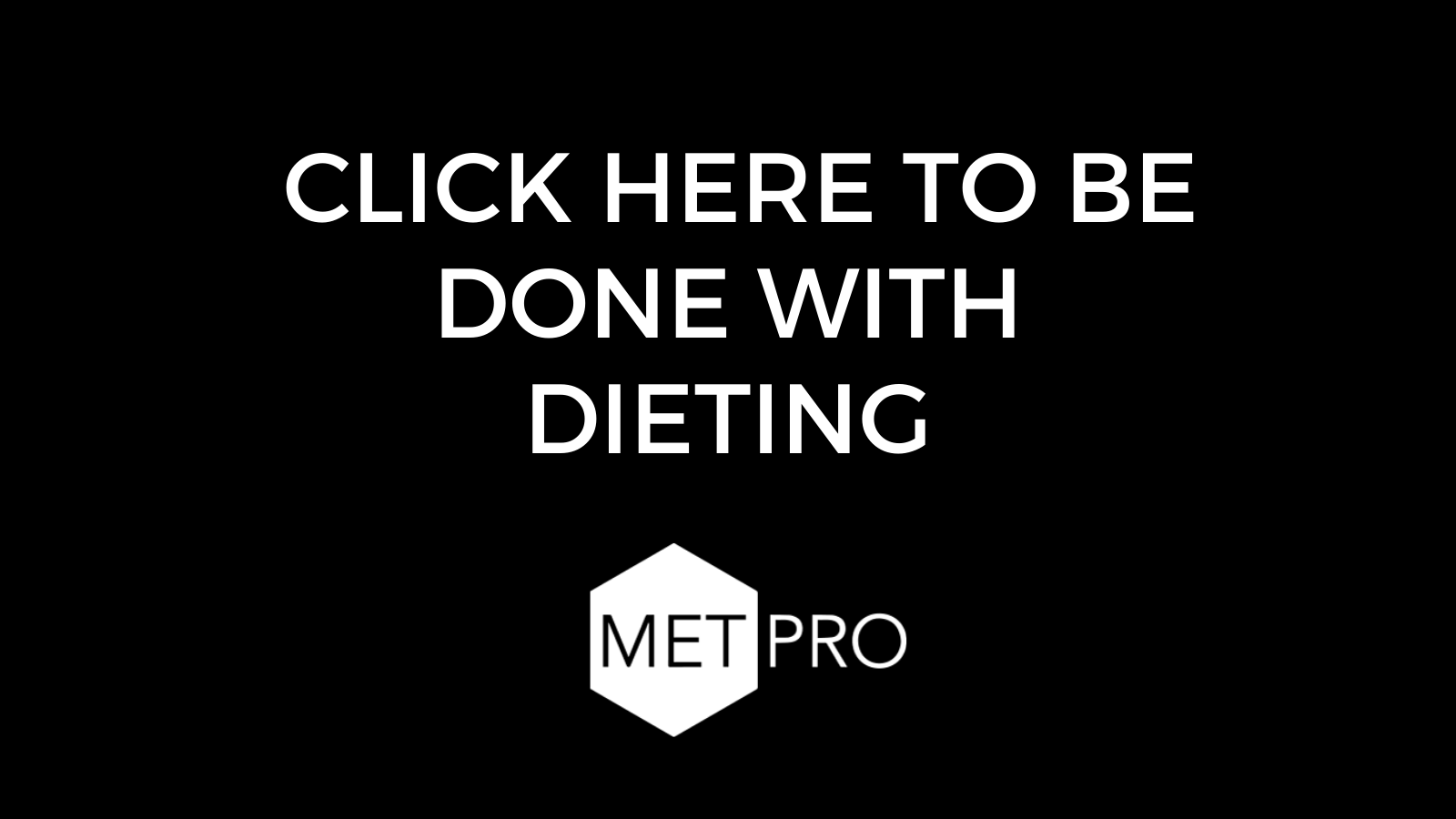In this episode, I am joined by MetPro Coach Kassy Dietle. We will be discussing alcohol and its effect on body composition. Thank you so much for joining me, Kassy.
Thanks for having me. It's always a good time.
A lot of people consume alcohol, myself included. We have different reasons for that. Sometimes it's relaxing. Maybe it's a social event. At some point, many clients are going to ask, "Can I drink alcohol on MetPro?
We get asked all the time.
I'm thinking how often you drink going to affect your results, so we should dig into why that is in this episode.
Let's do it. I'm excited.
If you have a 100-calorie beer, and that's all you drink, is it being added to your calorie count for the day, and that's it or is it more complicated than that?
It's more complicated. As a baseline, going through this conversation, it's important to note what's considered moderate drinking. The US defined moderate drinking as 2 drinks a day for men and 1 drink for women. We also want to understand how many calories come from the alcohol itself. You get seven calories per gram of alcohol. You also want to know carbs because there are carbs in certain types of alcohol. That is four calories per gram.
Throughout this conversation, it's important to keep that in mind. It loops perfectly into the question about beer because beer isn't just calories from alcohol. You've got to think with your 100-calories of beer. You're also getting some carbohydrates from that. About 100-calories of beer will get you anywhere from 3 to 7 grams of carb. You're not only looking at the body processing the alcohol out, but it's also processing out the carbs. If you work with MetPro, you know that we also count carbs. We keep in mind how much carbohydrates we eat.
It's not only adding the calories, but it's also total carbs. The overarching thing we want to remember is how alcohol is broken down in the body. It's seen as a toxin in the body. Our body doesn't like it. It's like Red Alert, Mission critical. Let’s get this out of the body.
When that happens, our body stops everything else that it's doing to process out the alcohol. That includes oxidation and burning fat. When you are bringing in 100 calories of beer in the alcohol, you're shutting down other processes that are going on. It's disrupting a lot of things, and it's not simply adding 100 calories to your total day.
If I'm hearing you correctly, I'm hearing that I'm doing double damage when I have a beer. I'm hearing, not only am I having a drink that's going to have calories, but also I'm putting any effort my body had into burning my fat. It's putting it on hold while it processes that alcohol.
That's correct. You should also note that the time it takes for our body to process through alcohol is multiple hours. It makes it a little harder on our bodies.
This is great news before I go on my cruise. It's good to know and understand because I have a lot of people ask me like, Why is it so impactful? Why do we look at hard alcohol versus beer differently?
We'll get into that. When you drink, is it also affecting your workouts too?
It does. We've got anecdotally. Think back to the last time you maybe drank too much. Did you have a stellar workout the next day? Maybe you didn't work out at all. That's one thing. Depending on how much you drink, it might stop the workout altogether, which is going to affect the workout. One of the big things that I try to educate on is, scientifically, the other thing that happens is alcohol dehydrates us. How it does that is it blocks what's called the antidiuretic hormone in our body, and that causes our kidneys to release more water.
What happens with that is we drink, this ADH hormone gets blocked, our body releases more water than normal, and we get dehydrated. When we're dehydrated, that can lead to headaches, nausea, and cramping. How that affects our workouts in specific is proper hydration is important for not only generating muscle contraction but also for energy levels. You can get fatigued quicker if you're dehydrated. By drinking alcohol, you become dehydrated. You do not have super stellar workouts because you don't have one of the main components that you need to generate the energy and power necessary to have a good workout.
I'm guessing you wouldn't feel very great during that workout too.
It goes back to when you're hungover. Do you work out or just skip it?
Let's say you managed to get the workout in, but then you drank. Let's reverse it. How does alcohol affect your recovery?
Unfortunately, it affects our recovery too. What happens are two main things. There are a lot of different ways to answer this. The two main things that happen are it impacts our sleep and our immune function. With our sleep, what alcohol does is shorten our REM sleep. Our REM sleep is our deepest and most restorative form of sleep. This is when we work on rebuilding any of the muscle tears that we made in our workouts. It's when we work on recovering from injuries. It's when we work on our memory consolidation.
It's solidifying those neural pathways that we made when we learned different exercises or workouts at the gym. This all happens during REM sleep, and that gets shortened when we drink alcohol. That's one thing. The second is our immune function. Our immune system takes a hit. I don't think a lot of people know this, but 70% of our immune system resides in our gut. It's called GALT for short. It stands for Gut-Associated Lymphatic Tissue. How alcohol impacts it is it irritates our gut. Our guts are made up of tightly-packed cells. They're called tight junctions. Our cells fit together with these tight junctions.
When alcohol comes together, it irritates that. It opens these tight junctions up. That becomes a problem because things like undigested proteins or things that aren't supposed to get into our bloodstream are now able to go through these pools that are now open because alcohol has irritated the lining.
The other thing that happens is alcohol kills the microorganisms that reside in our gut. Think about the microorganisms like our own little army. If you have alcohol coming in and killing off some soldiers in the army, you're not going to have as many soldiers to fight off other things coming in that need to be combated. It irritates our gut, opens up the lining, and then it kills our soldiers off. That impacts our recovery because our immune system is at a loss of defending us as it's supposed to. If we get sick, we can't recover as well.
I know you said this isn't all bad, but I’ve got to be honest. This sounds all bad. Is there an amount that you can drink that's not going to impede your results, recovery, workouts, that kind of thing?
I said this in my last show too. What I'm pushing for the slogan for MetPro is, It depends on the person.
You sound like Angelo. He says that every time, It depends.
He taught us well. I would say it depends on the person how your body processes alcohol because everyone's different in terms of what they can tolerate. It depends on your goal and your timeline. How fast do you want to get there? For example, if your goal is general health and maintenance, you might be fine with moderate drinking, which the US defines as 2 drinks for men and 1 for women. You might be fine with that. Maybe your goal is you want to lose X amount of weight in X amount of time. If you add alcohol into the picture, it's going to slow it down for sure.
That's one of the great things about having a coach on the concierge service. You get that person to look over your every move and have a coach who can tell you, You can drink a couple of drinks a week. It wouldn’t impact you.
Your coach might be, You had a couple of drinks, and it set you back by five pounds of water that took a week to get off.
It's helpful to have a second set of eyes that can be like, You can handle this amount of alcohol or you can’t handle this amount.
What about if you are going to drink and are trying to minimize what the impact is. Are there certain types of drinks that are better than others, or are all drinks created equal?
There are ones that are better than others. At MetPro, we're huge fans of hard liquor.
It's so counterintuitive. I say that every time.
I tell all of my clients, “Vodka soda or shots because you get more bang for your buck.” I'll list them from best to worst. Your best is going to be your hard liquors. That's with your non-calorie mixer, like a vodka soda. That's going to be about 95 calories and 0 grams of carbs. Your second is going to be your hard seltzers. These are about 100 calories. Usually, you have 1 to 2 grams of carb. From there, you go to your dry wines. This is going to be about 110 to 150 calories. Now you're starting to jump up in carbs a little bit.
Depending on the wine, it's 2 to 5 grams of carb. We're now processing alcohol and carbs. From there, you've got beer. Beer is going to range depending on what you like. Your lighter beers are going to be lighter on the calories, around 110 to 150 calories and about 5 grams of carb. We've got the people that like the IPAs, the Guinness, and stouts. Those are going to be thicker, heavier beers at about 240 calories with 22 grams of carb.
Next is the worst of the worst. The worst offender is our mixed drinks, your margaritas, strawberry daiquiris, piña coladas, and long island ice teas. You name it. Anything that's mixed drink is going to be a lot worse, upwards of 500 calories and 30-plus grams of added sugar. If you think about one mixed drink, you can essentially have five vodka sodas for that same amount. Think about how much good food you can eat for that amount of calories. Is it worth it?
The 200 calories are more of a snack, and the 500 are more of a meal, but it's a lot regardless. It's important to think about that. Going back to what you said, you're processing not only the alcohol but the carbs on top of that. Let's say you did have a drink. Is there anything you can do to offset the effects of alcohol once you have the drink?
I will give three tips. My first one is I have all of my clients watch their water when they're drinking. My rule of thumb is one drink, one bottle of water. Depending on how many drinks you have, you alternate. You have a drink, and you have a bottle of water. This goes back to how we talked about how alcohol dehydrates us. It's going to help put more water into the body and mitigate some of the headaches, fatigue, and decreased performance that we might get from the dehydration of the alcohol. Plus, it also slows down your drinking rate because you've got a pause to drink the bottle of water. That's the first tip, hydration.
The second is going to be planning your night. What tends to happen is it's not that alcohol is always the problem. It's what happens with alcohol. Usually, when our judgment is a little impaired, we tend to want not the best options in terms of food. We'd go for the fattier, the fried, and calorically dense. I refer to them as the drunkchies. The drunk munchies get us. My tip is when you're going to drink, have a plan of what you're going to allow yourself to eat because if you're picking these calorically-dense high-fat foods when you drink alcohol, it impairs our ability to oxidize fat. All of those calories and fat that we eat are going to go into storage.
It's a triple threat.
Be cautious of what you eat, especially your fat content. The third is more of a tip from another coach. She knows exactly who she is, so when she reads this, I hope she laughs. We have another coach who says the best time to drink is in the morning. It's true. She'll also let you know who she is. Think about you have the whole rest of the day.
Let's say you have a mimosa, and then you have the rest of the day to process through a lot of that alcohol to continue moving your body, go about your daily activities, and burn off a lot of that before you get to the end of your day, versus when you're drinking at night. You then pretty much go right to bed. You're not utilizing a lot of that energy. That goes into more storing at night.
Per Coach Kassy, get buzzed early.
I'm just giving you tips.
I'm in my mode for my upcoming little cruise that I'm going on. I was hearing it as, Have that mimosa at breakfast.
That's what I was hearing.
Also, brunch on the weekend.
Is there anything else people need to know about reaching their goals and consuming alcohol?
I will end with this. I will bring it all first full circle because I took a nice, healthy job at alcohol. As I said, it's not all bad. I just think everyone needs the information so that they can make the decision. What I will say is it's not a make it or break it. If you enjoy drinking and enjoy a good glass of wine, there's a place for it in your plan. You only have to remember that your tolerance and what your body can handle are going to be different from the next person.
That's why having a coach that can work with you can be helpful in learning that. The other thing is your timeline. If you want to incorporate alcohol, that's fine, but you have to accept that it's going to slow your timeline down. It's going to stretch it out. As long as you're cool with that, I'm cool with it. We can make it work. You can drink alcohol, and we can have a good time. It's okay, but you have to take into consideration that it's going to slow you down to your goal. What you can have is going to be different from the next person.
Basically, think about it, be thoughtful, plan, and have a strategy. That's where your coach comes in. Make sure that you understand it's all about balance. That's great advice. Readers, that is all for this episode. You can find all of the episodes anywhere or you can go to MetPro.co/podcast. Please be sure to follow the show and rate and review. That lets other people know what they can expect from the show. You can also learn more about MetPro at Metpro.co. I will be back next time. Until then, remember, consistency is key.






